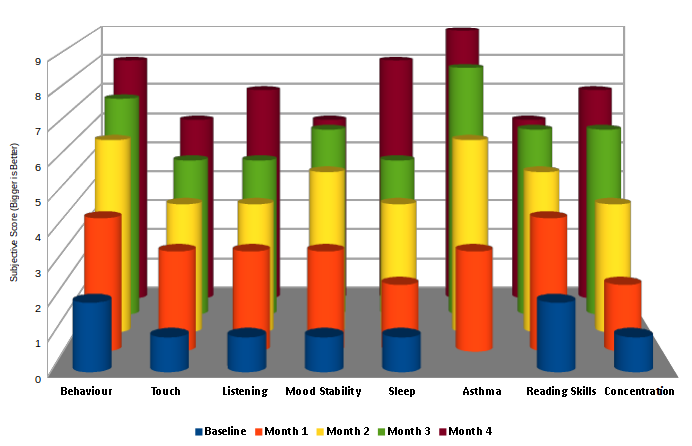by Dr Gloria Hettige Ph.D & Dayandra Hettige MBA
Some people have a clear sense of why they become depressed. Others don’t. It is often not easy to determine. In most cases, depression doesn’t have a single cause. Instead, it results from a mix of things: genetics, past events, current circumstances, and more.
Research over the past two decades has revealed that gut health is critical to overall health, and that an unhealthy gut contributes to a wide range of diseases including diabetes, obesity, rheumatoid arthritis, autism spectrum disorder, chronic fatigue syndrome and depression. Hippocrates said this more than 2,000 years ago, but we’re only now coming to understand just how right he was.1
Undoubtedly, gut disorder triggers inflammation and may include the dysregulation of the HPA axis (hypothalamus-pituitary-adrenal axis).2
In fact, many researchers (including myself) believe that supporting intestinal health and restoring the integrity of the gut barrier will be one of the most important goals of medicine in the 21st century.
The following is one way we approached the problem.
Case Study
A 44 year old farmer’s wife presented with weight problems for 20 years, chronic fatigue, mouth ulcers, low self esteem, chronic depression and a high anxiety level, manifesting in part as an extreme fear of death. She experienced constant panic attacks and was constantly very tearful. Constipation, headaches, sore breasts. lower back problem and regular thrush infections were also noted.
Rigorous case taking and investigation of her historical lab results revealed:
- She was adopted
- Low self esteem
- Nutritionally hollow
- Extremely elevated systolic and diastolic blood pressure
- Elevated liver enzyme
- Elevated uric acid
- Low iron
Treatment
The treatment goal was to rebuild the body network, namely the neurology, physiolology, biochemical and hormonal pathways.
Recommended a nutritional support, dietary changes, exercise regime, deep abdominal breathing, and regular monitoring e.g talking to her regularly, monitoring her progress, listening and nurturing.
Listening, coaching and nurturing build her confidence and resilence.
Elimination of gluten, dairy, sugar and wheat.
Drinking 6- 8 glass of water
Introduction of organic chicken and fish to previously red meat diet.
To stop alcohol .
To walk daily for 30 mins.
Pain was resolved through the use of scenar treatments.
Table 1: Patient Protocol
| Products | Dose | Notes |
|---|---|---|
| Complex for Nervous exhausion | 1 tablet BID | To support nervous exhaustion |
| Enhanced Bioavailability Co-enzyme Q10 150mg | 1 tablet once daily | To support cellular energy |
| Magnesium and Broccoli for Women’s Health | 2 scoops BID | To support stress |
| High Purity, Low Reflux Concentrated Fish Oil | 2 caps BID | To support inflammation |
| Milk Thistle, Green Tea & Amino Acids for Optimal Detox. | 1 scoop BID | Nutritional and Herbal Support for liver detoxification |
| Mood, Adrenal and Thyroid Support | 1 tablet BID | Organ support |
Clinical outcome
Treatment protocol aims to modulate the gut function resulting in better communucation between the enteric nervous and HPA axis through better management of food intake, exercise, customised nutritional plan, regular counselling.
Each month for three months the patient scored her level of sleep, anxiety, physical energy, mood, ability to cope with stress and productivity on a scale of 0 to 10. See Figure 1.
Figure 1: Progress Over Three Month Period
Notable results include:
High ALT reduced from 56U/L to 19U/L
High AST reduced from 37U/L to 21U/L
Low albumin raised from 28g/L to 46g/L
High Alkaline phosphatase lowered from 193U/L to 38 U/L
Figure 2 shows the improvement in the blood markers before and after the protocol:
Figure 2: Blood Markers
Net outcome
- More energy
- More resilient
- No depression
- Regular bowel motion.
- BP is completely under control
- More joy
- No mood swings
- Sleep about 7hrs
- No headaches
Conclusions
This case highlights one way a patient presenting with symptoms of depression was successfully managed with complimentary medicine and regular monitoring. It required careful nurturing and listening before the administration of the actual treatment plan. This plan positively addressed the underlining drivers of the depressive symptoms. It has been two years since the patient experienced an episode of depression. She recently commented:
I am able manage, overcome and dispel any feelings of depression.
___
1Chris Kesser. 9 steps to perfect Health. Heal the gut.Feb 24, 2011
2Metagenics Seminar. The neurobiology of stress and mood disorders. March to April 2012



